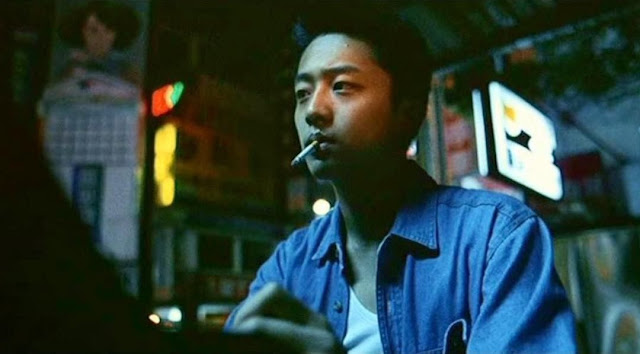 |
What can I say, this game speaks to me
|
Every year, I like to set myself little cultural projects. Things I can whittle away at over the course of 12 months like watching 52 films directed by women, or watching more films from India, so that I can force myself to experience new things and step outside of my comfort zone.
This year, I decided that my project would be to play through all of the main games in the Yakuza series. Produced by Sega, the sprawling and long-running series of action-adventure/RPG games encompasses over a dozen titles at this point if you include spin-offs, some of which can only be played (legally) on consoles that are no longer available. So for this, I played through the seven games focused on the story of Kazuma Kiryu, a sentient slab of muscles with an extremely well-developed sense of morality who starts out as a mid-level Yakuza enforcer in the first game, rises to become head of the powerful Tojo Clan, then walks away from it and spends the rest of the series trying to escape from his criminal past with extremely limited success. It's an epic saga that covers 30 years of Kiryu's life, and features some of the best long-form storytelling the medium of video games has ever attempted.
It is also an extremely ridiculous, melodramatic run of games that features over the top characters, wild action, more shirtless rooftops fights than you could possibly imagine, and a dizzying array of side-quests and minigames that add up to a frankly exhausting amount of videogame. The balance the series strikes between how silly its story is and how deeply it cares for its characters makes for an intoxicating mix, and while I started playing them because I'd heard they were unbelievably fun and engrossing, I very quickly found myself being invested in the story and character of Kiryu, and the series' prolonged interest in exploring the inner life (and outer violence) of a man approaching middle-age, reckoning with all the pain he has caused and trying to build something better for the next generation.
I also fell in love with Kamurocho, a fictional entertainment district in Tokyo which provides the main setting for much of the series. Not only is it a very fun place to run around, get into fights, and sample minigames that range from simple (darts and pool) to intricate (slot car racing and running a cabaret club) to extremely seedy ("massages" and softcore video booths), but it feels like a living, breathing city where things change every time you start a new game. Some of this reflects technological advances over the course of the series, but it also underpins one of the recurring themes of the series; the battle between an older way of doing things rooted in loyalty and the messiness of humanity, and a newer, heartless and more corporate way of living.
It's such a central idea to the games that there is a series-long subplot about how Kamurocho's one big public park, which serves as a home for the city's unhoused population, gets turned into a mall, forcing the people who previously lived there to eke out an even more meagre existence in the sewers. Not to throw all video games under the bus, since there are plenty of games out there that tackle big and complicated issues in innovative ways, but it is rare to see a series of this scale and prominence so interested in fundamental issues that shape modern life.
All that being said, the series is not without its flaws. Probably the biggest mark against it is the strain of transphobia which runs throughout, and while the games get better at handling their trans characters as they go along (to the extent that one of the most egregious substories from the third game was removed entirely when it was re-released as part of the remastered collection of 3, 4 and 5) at best it manages to be awkward at including them. This is not to say that all the violent crooks in this series of crime games should have good politics, far from it; many of the characters in the games are racist against Koreans and the Chinese, in fact their racism is central to the plots of at least two of the games, but there is always a sense that the Korean and Chinese characters in the game are people, whereas the trans characters in the game are, with very few exceptions, depicted as little more than jokes, and that runs counter to the warmth that can be found throughout the rest of the series.
Since these games are all pretty long and involved, and it took me pretty much the whole year to work through them, I thought I would do a whole list ranking them separate from my best games list, rather than have that list consist of seven Yakuza games and Inscryption. So with all that out of the way, here is my ranking of the mainline Yakuza games.












